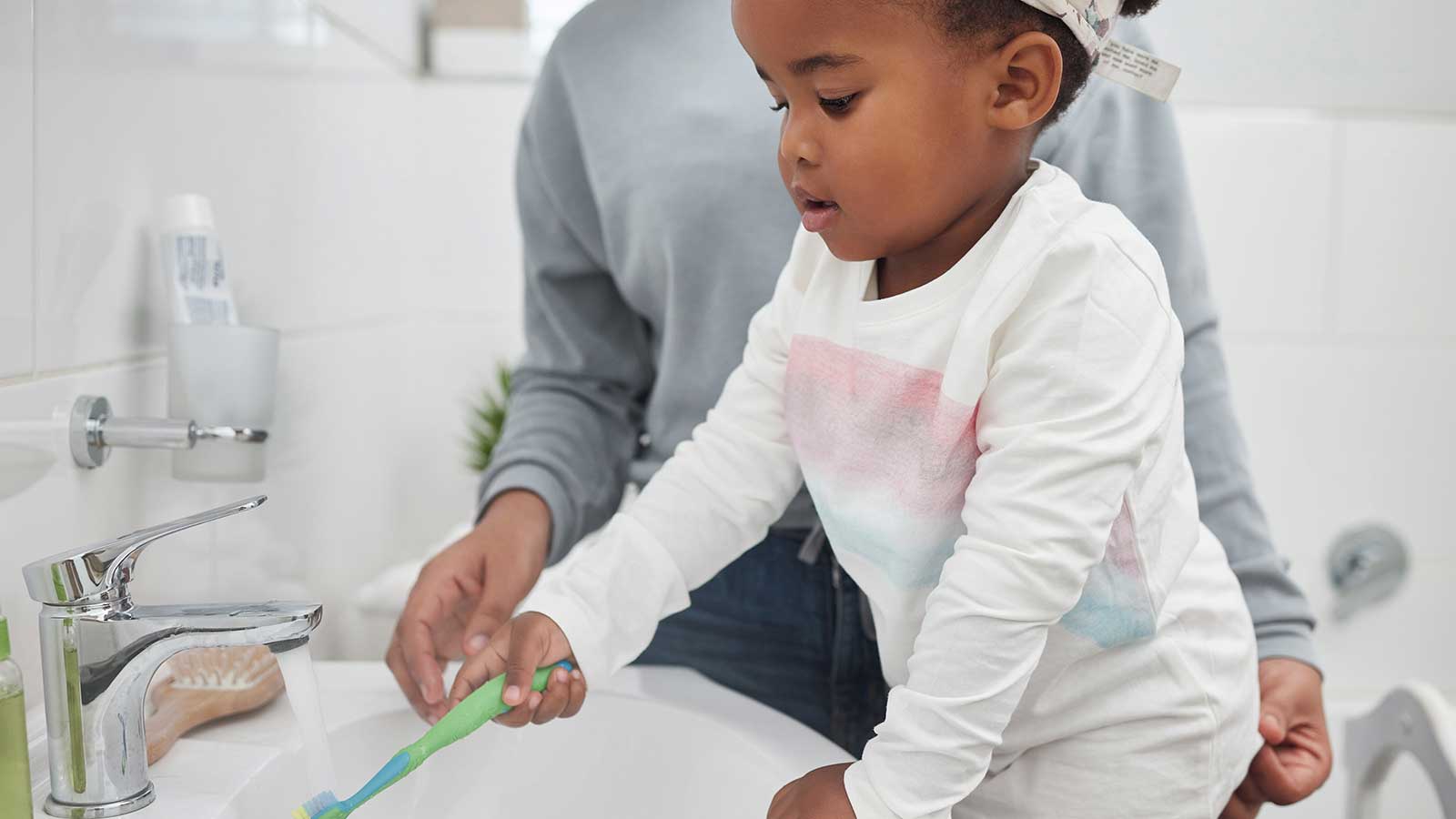
Good dental health sets the stage for a child’s overall health and development. By instilling good oral hygiene habits from an early age, parents can help prevent dental problems and ensure healthy growth. Let’s look at a few reasons why dental health for children is so important.
- Avoiding tooth decay: Tooth decay is a common issue among children, but with proper dental care, it can be avoided. Regular brushing, flossing and dental check-ups can help remove plaque and prevent cavities. Limiting sugary snacks also significantly helps.
- Supporting proper jaw development: A child’s jaw growth is vital for proper speech development and the alignment of permanent teeth. Good dental health practices and avoiding habits such as thumb sucking can aid in the development of a strong and well-aligned jaw.
- Boosting overall health: Dental health is closely tied to overall health for both children and adults. Poor oral hygiene can lead to gum disease, which has been linked to various health problems, including heart disease and diabetes. By taking care of their teeth and gums, children can reduce the risk of developing these conditions later in life.
Building Good Oral Hygiene Habits
Teaching proper brushing techniques is the cornerstone of good oral hygiene. Show your child how to hold the toothbrush at a 45-degree angle and use gentle circular motions to clean all surfaces of their teeth. Ensure they brush for at least two minutes, twice a day, and remind them to brush their tongue as well.
Alongside brushing, flossing plays a crucial role in removing plaque and food particles from between the teeth. Start flossing your child’s teeth as soon as they have two teeth that touch. Use child-friendly floss picks or floss holders to make the process easier. As they age, encourage them to floss independently and make it a daily habit.
For older children who have mastered brushing and flossing, introducing mouthwash can provide additional protection against cavities and bad breath. Choose a mouthwash specifically designed for children and ensure they use it under your supervision. Remind them not to swallow the mouthwash and to spit it out after use.
Be a positive role model by practicing good oral hygiene yourself and make dental care a priority for the whole family.
Selecting the Right Dental Products
Here are some important factors to consider when choosing dental products for children.
- Age-appropriate toothbrushes: Children’s dental needs change as they grow, and selecting a toothbrush suitable for their age is important. For infants and toddlers, it is recommended to use a small, soft-bristled toothbrush with a handle that is easy to grip. As they age, you can transition to a larger toothbrush with a mix of soft and slightly firmer bristles, depending on their comfort level.
- Fluoride toothpaste: When choosing toothpaste for your child, look for one that contains fluoride. However, it is important to use only a pea-sized amount of toothpaste for children under six years old to minimize the risk of swallowing too much fluoride.
- Dental sealants: Dental sealants are a protective coating applied to the chewing surfaces of the back teeth. They act as a barrier against bacteria and acids that can cause cavities. Dental sealants are particularly beneficial for children who may have difficulty thoroughly cleaning their molars.
Remember to consult with your child’s dentist for personalized recommendations and guidance.
The Significance of Regular Dental Check-Ups
- Scheduling the first dental visit: The American Dental Association recommends that children visit the dentist by their first birthday or within six months of the eruption of their first tooth. Starting dental visits at an early age helps to establish a positive relationship with the dentist and ensures that any potential dental issues can be addressed.
- Understanding the benefits of preventive care: Preventive visits allow the dentist to detect any early signs of tooth decay, gum disease, or other dental problems. By identifying issues in their early stages, preventive care measures can be taken to stop further damage and potential pain for your child.
- Addressing dental issues early: Catching problems early is particularly important for children, as their teeth and jaws are still developing. Early intervention can help correct any misalignments, bite issues or other dental problems before they worsen and require more extensive treatment.
Educating Children About Oral Health
Start by explaining the importance of good oral hygiene in a way that is easy for children to understand. Emphasize that brushing and flossing help keep their teeth strong and healthy and prevent cavities and gum disease. You can use visual aids, such as diagrams or videos, to make it more relatable.
Another important aspect of educating children about oral health is teaching them about the effects of poor dental health. Explain that if they don’t take care of their teeth, it can lead to painful toothaches, difficulty eating, and even problems with their overall health. Use age-appropriate language and examples to help them grasp the consequences.
When it comes to dental care for children, making it fun and engaging is key. By incorporating games, songs, books and creative activities, you can help your child develop positive associations with oral hygiene that will last a lifetime.
Sources and References:
American Dental Association
Want the latest & greatest from our health blog
straight to your inbox?
Subscribe today for a periodic email with our latest posts.

